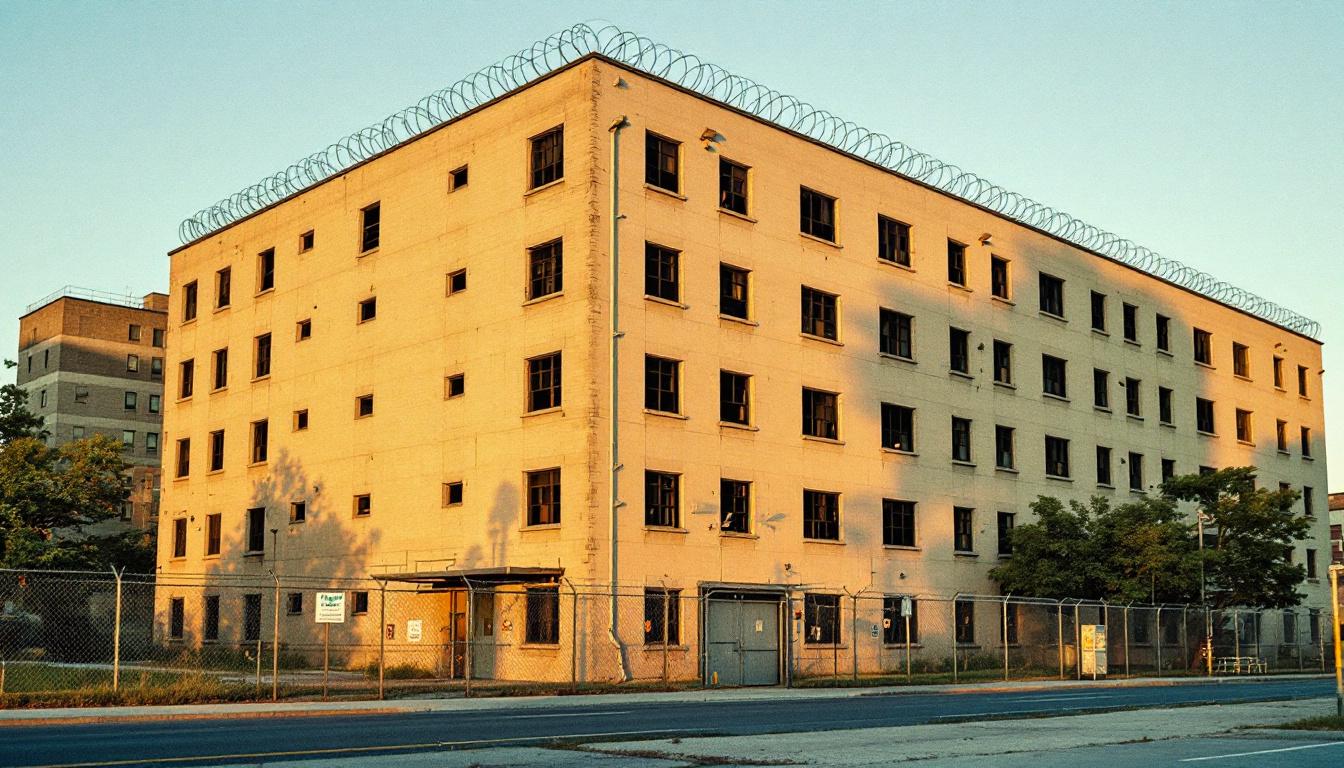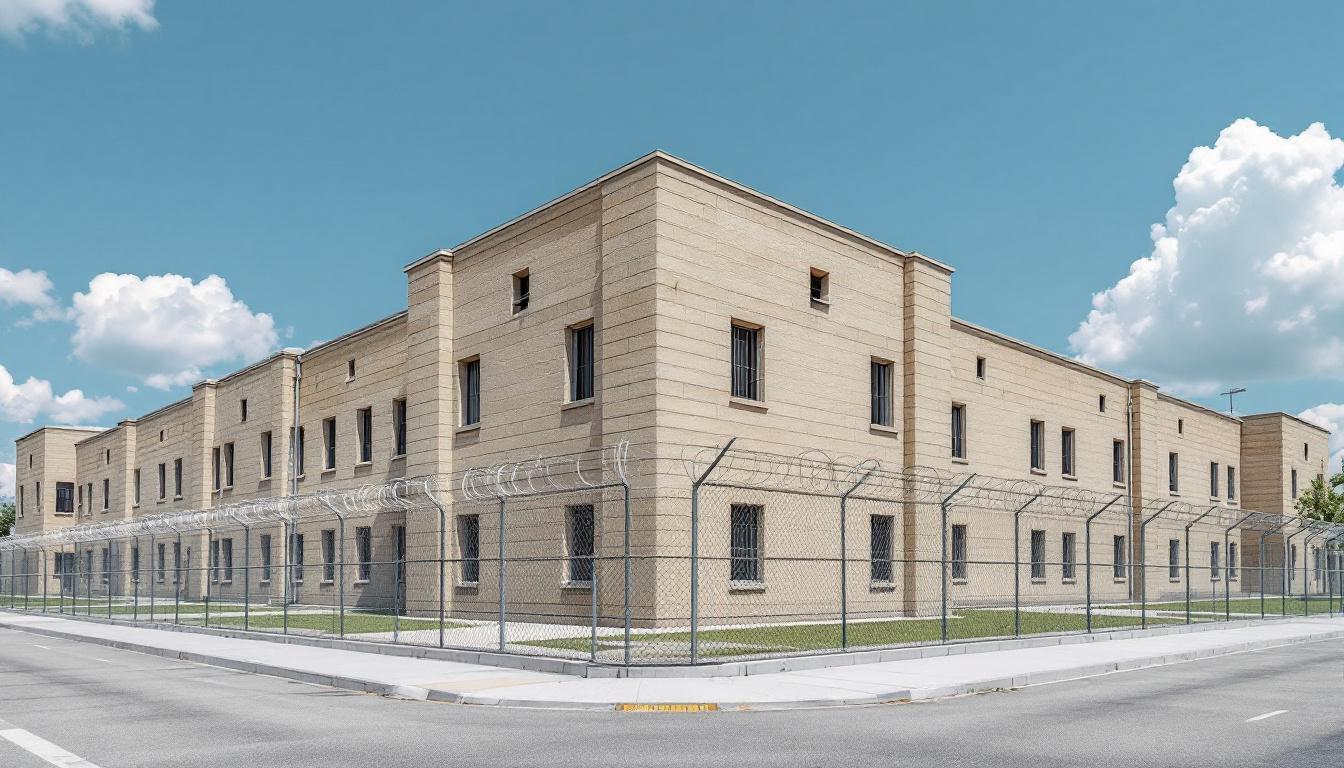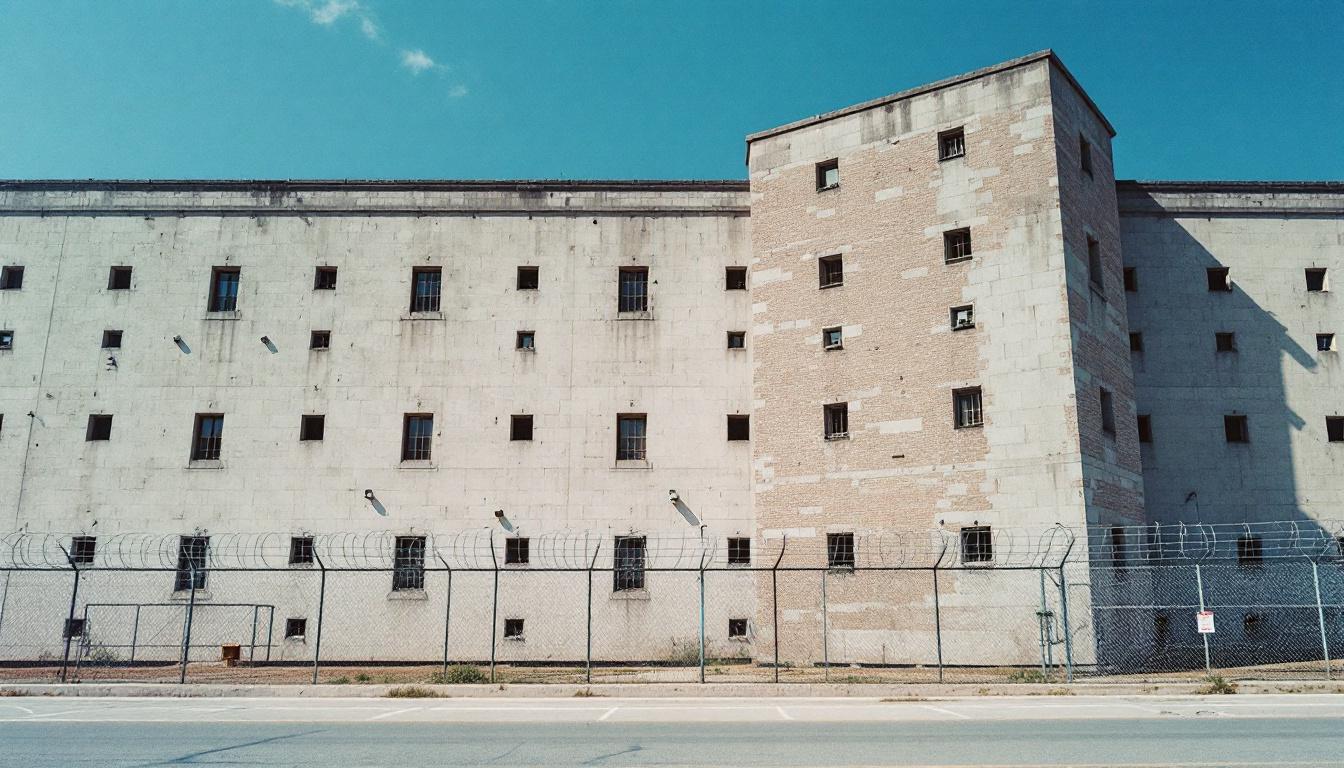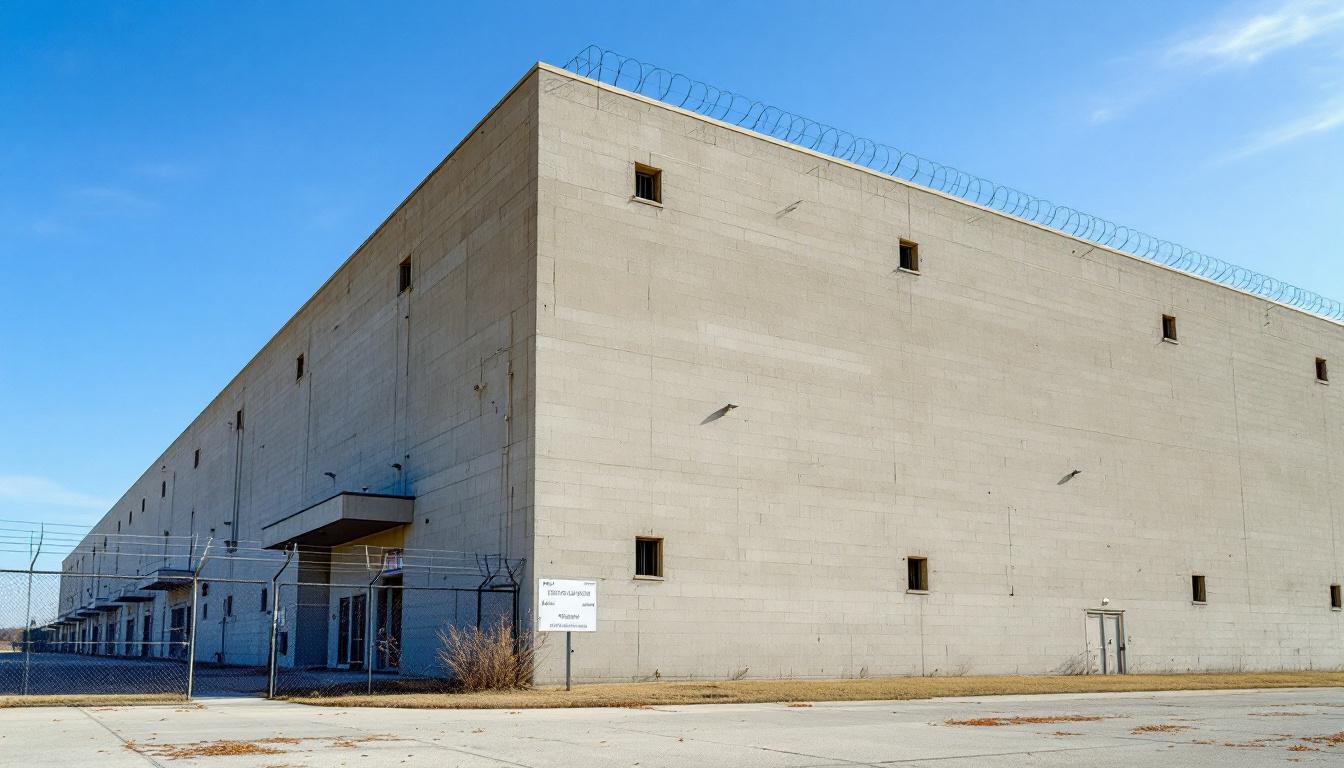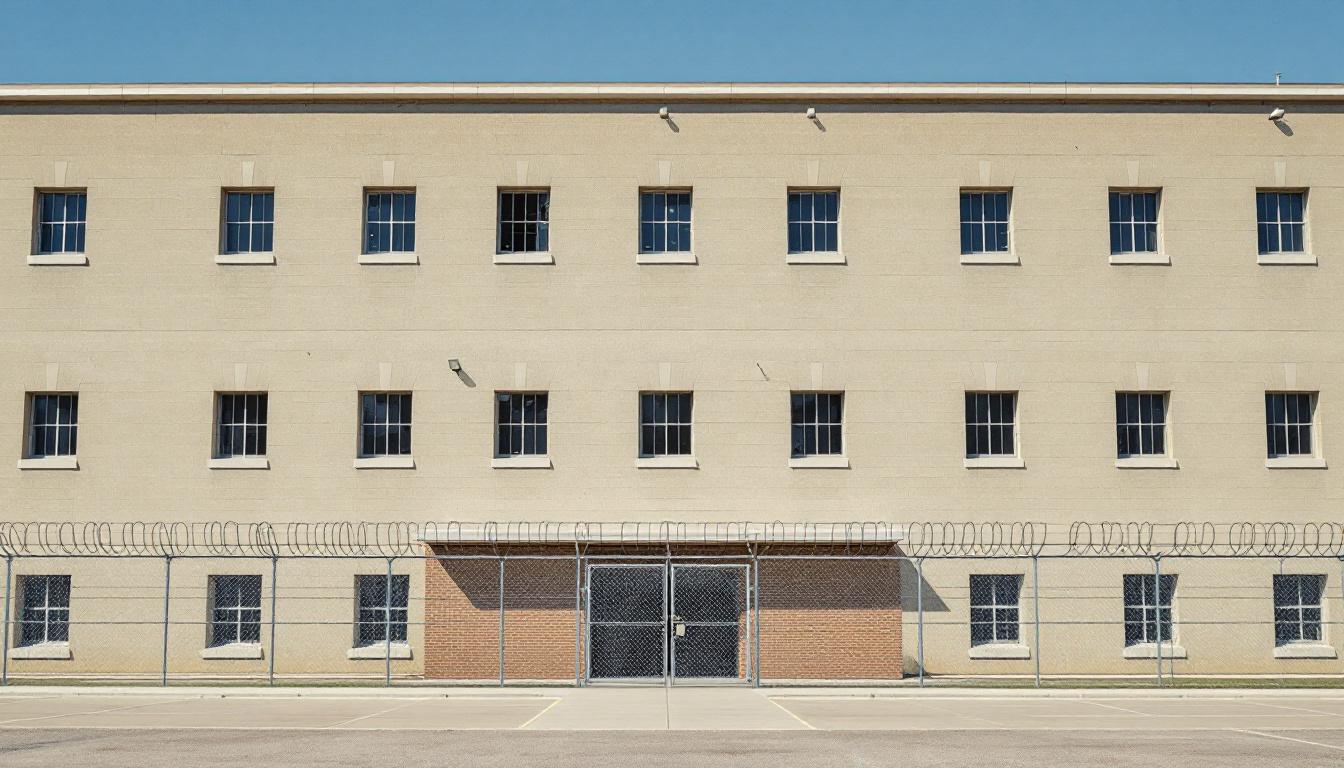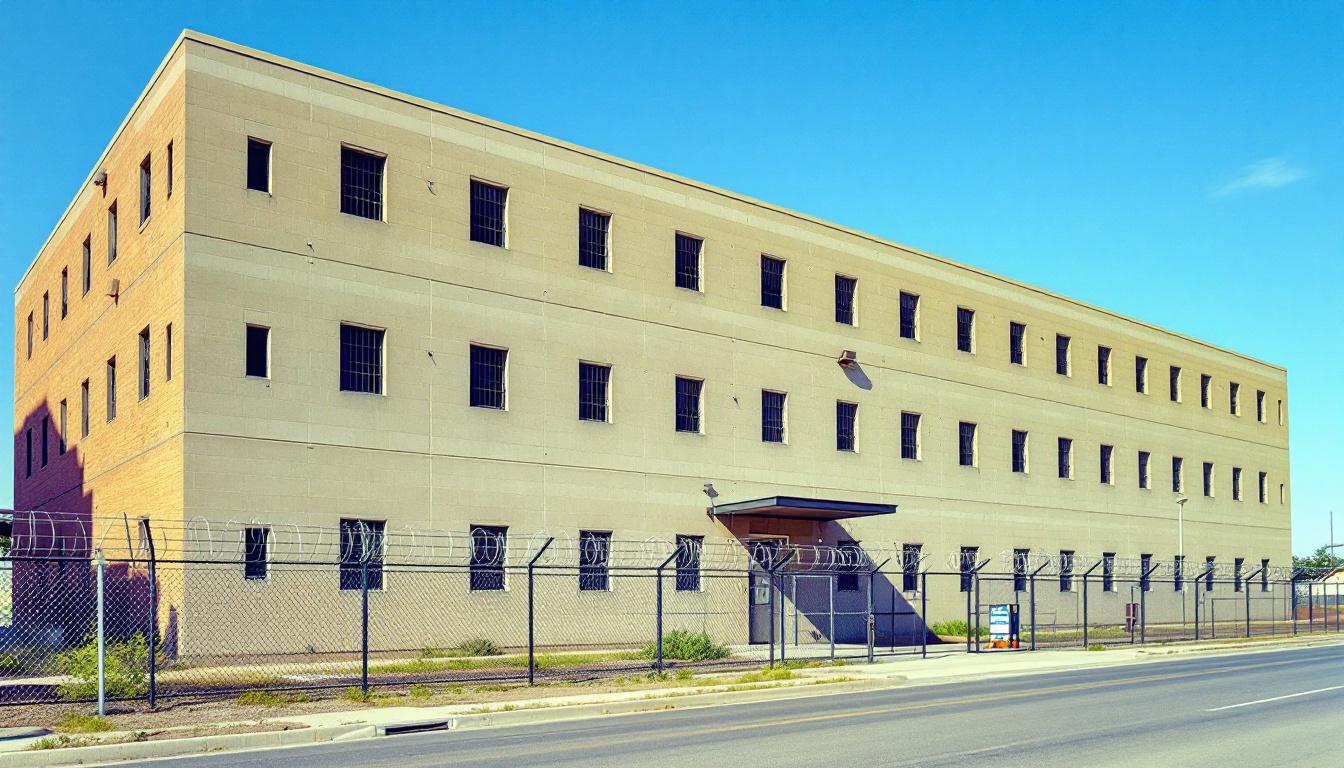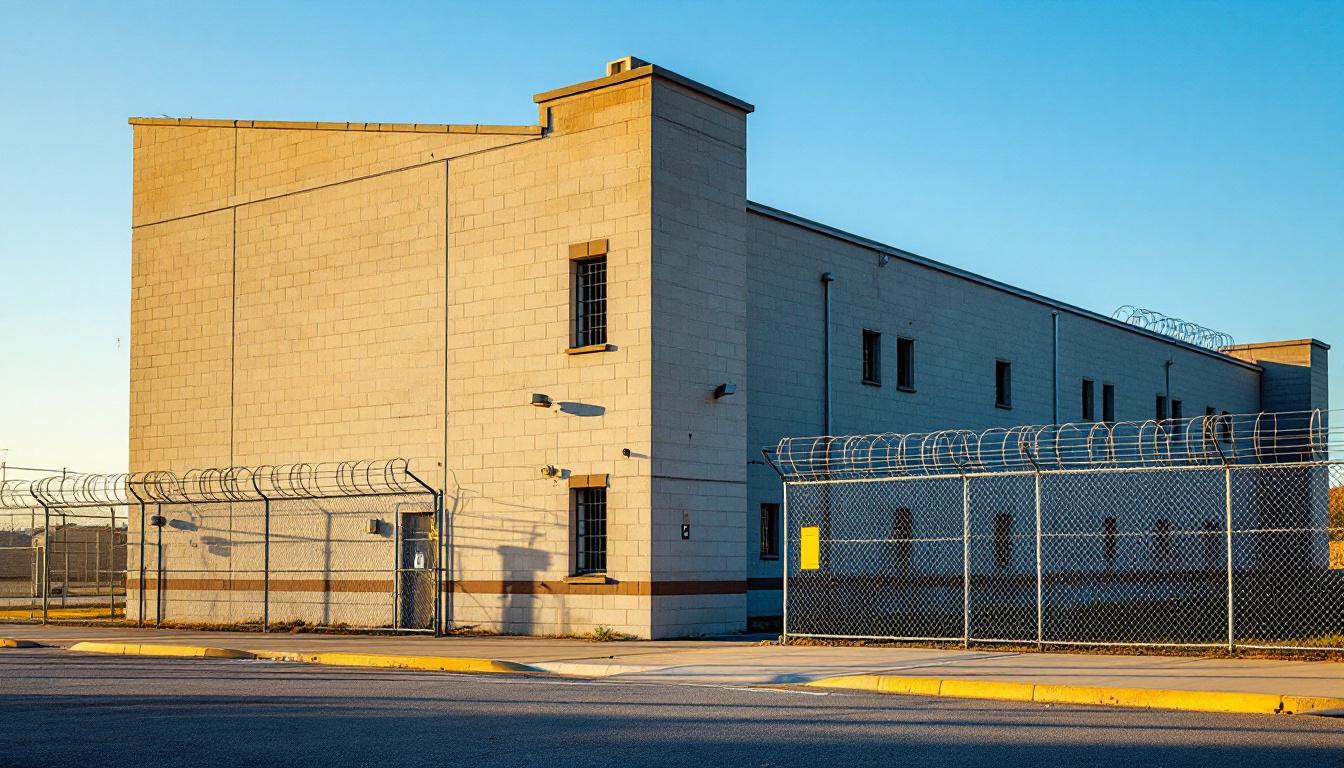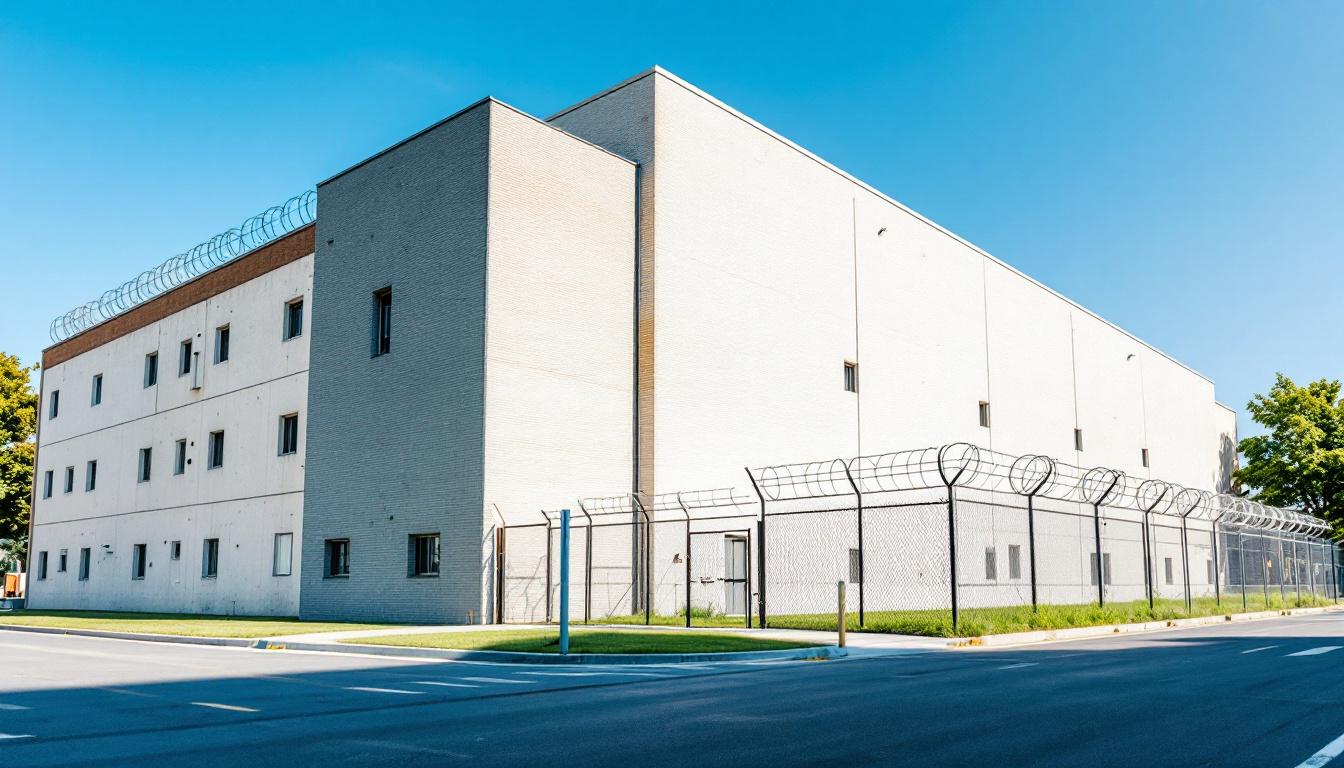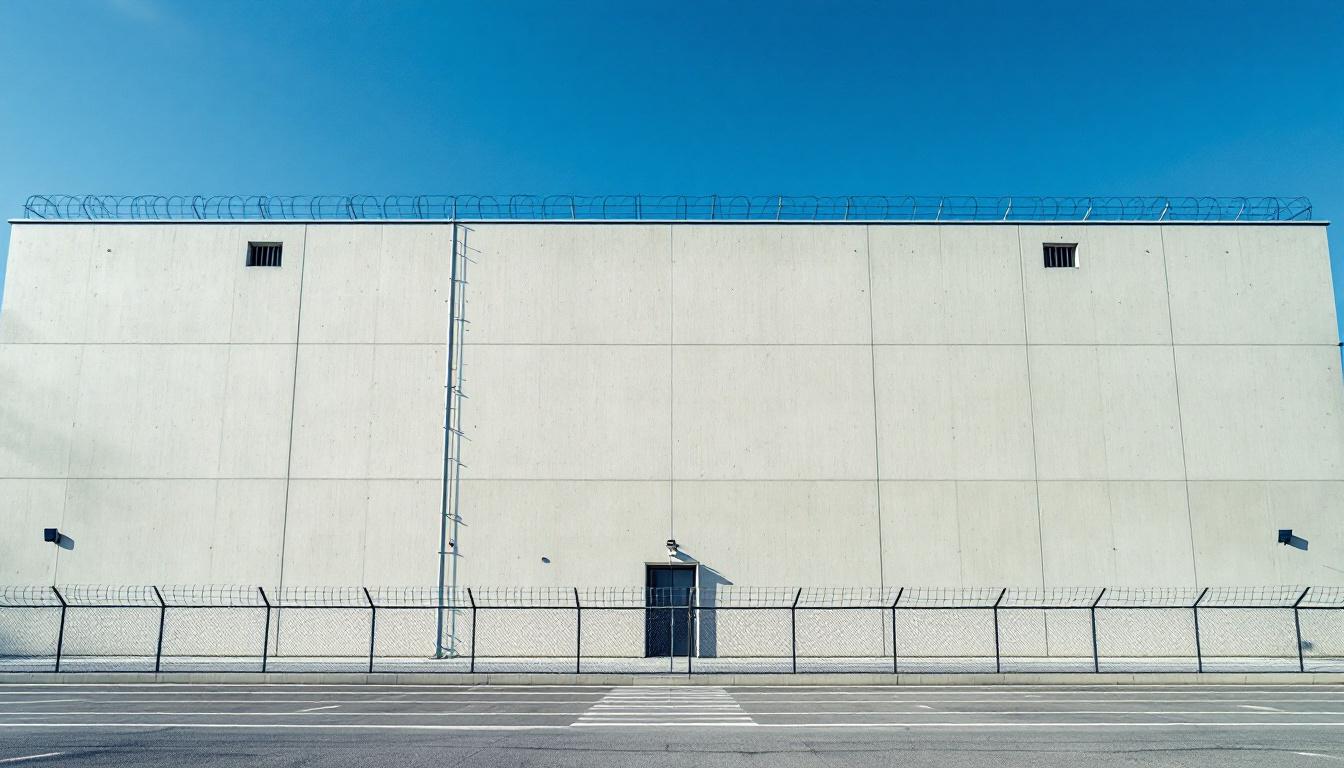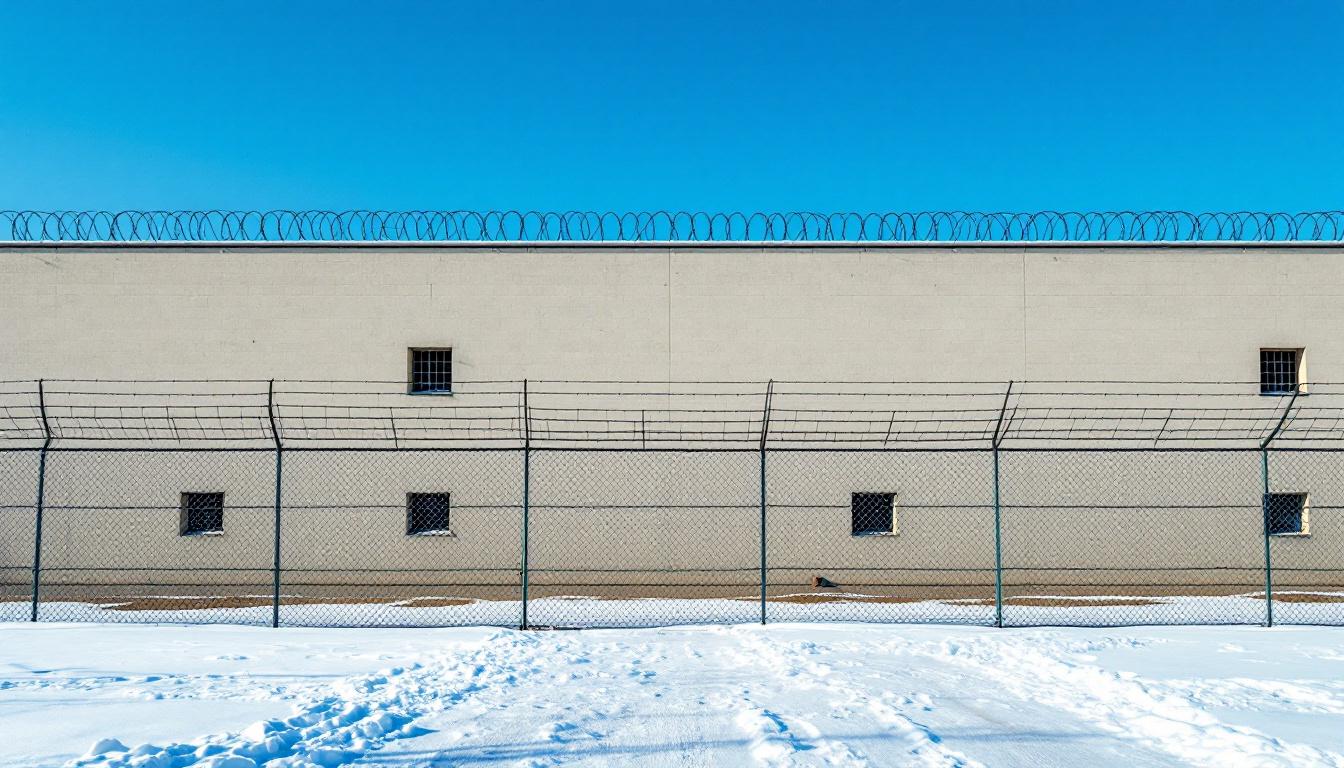
Quick Navigation
How to contact an inmate at Mabel Bassett Correctional Center
This comprehensive guide will walk you through how to connect with an inmate at Mabel Bassett Correctional Center. Follow the steps below to find an inmate and send letters and photos:
- Search for the inmate using our search tool below
- Create your account or log in to Penmate
- Write your message (up to 6,000 characters)
- Send instantly - inmates receive printed copies daily
Find an Inmate
Search for an inmate to start communicating today
Tip: You can search by first name, last name, or inmate ID number
To contact a person at Mabel Bassett Correctional Center start by searching for the person on the official facility website. Perform a search by following these steps:
- Step 1: Enter their first name and last name into the search form and click "Search"
- Step 2: Locate their inmate record
- Step 3: Write down their Inmate ID and any housing information provided
Important! Be sure to enter the person's full name. Nicknames should not be used.
How to Send Messages to Inmates

You can use your phone or computer to send emails, letters, and photos to an inmate. Messages are sent electronically to inmate tablets or kiosks at the facility. If you would like to send a message, start by searching for an inmate at Mabel Bassett Correctional Center.
Sending Photos and Postcards

A great way to send love and support to a loved one at Mabel Bassett Correctional Center is to send photos and postcards. It only takes a few minutes to send photos from your phone and it makes a huge difference. You can also mail postcards with words of support and inspiration, or design your own postcard for special moments like birthdays and holidays.
Important! Be sure not to send any explicit photos or they may not be approved by the facility. You can also use a photo printing app like Penmate to make sure your photos are printed at the correct size (4x6 or 3x5) and are mailed according to the rules and regulations of Mabel Bassett Correctional Center.
Frequently asked questions about Mabel Bassett Correctional Center
-
How long does it take to deliver a message?
If you're sending an email message your letter is usually delivered within 24-48 hours. For messages sent via mail you should expect delivery within 3-7 days. All messages will need be approved by Mabel Bassett Correctional Center.
-
How much does it cost to send a message to Mabel Bassett Correctional Center?
You can send a message free using your phone or mail a message via USPS for the price of a $0.60 stamp and envelope. You can also purchase credits or e-stamps from services starting at $1.99.
-
What services can I use to contact an inmate at Mabel Bassett Correctional Center?
Penmate
You can use Penmate to send letters and photos to an inmate from your phone. It's an easy way to stay in touch during your loved one's incarceration. Use the inmate locator to find an inmate's location and contact information, then you can send messages within a few minutes.
Securus messaging
Securus may be another option for communicating with an inmate at Mabel Bassett Correctional Center. You can create a friends and family account and purchase credits to send messages. All messages will be reviewed and must be approved by the facility.
JPay
Some county jails and state prisons may support sending messages with JPay. You must register an account with the system, find your loved one, and purchase stamps to send messages. For some locations you can also attach photos.
Smart Jail Mail
You may also check if Smart Jail Mail is available at Mabel Bassett Correctional Center. Smart Jail Mail is operated by Smart Communications and has contracted with some state and county jails. After purchasing credits, your messages and photos are sent to the facility, printed out, and then handed out to your loved one.
-
What is the mailing address of Mabel Bassett Correctional Center?
Mailing address:
Mabel Bassett Correctional Center
29501 Kickapoo Rd
McLoud, OK 74851
Phone: (405) 964-3020Business hours:
- Monday: Open 24 hours
- Tuesday: Open 24 hours
- Wednesday: Open 24 hours
- Thursday: Open 24 hours
- Friday: Open 24 hours
- Saturday: Open 24 hours
- Sunday: Open 24 hours
-
What are the visiting hours at Mabel Bassett Correctional Center?
Visiting hours at Mabel Bassett Correctional Center vary by housing unit and security level. Generally, visits are scheduled on weekends and holidays, with some facilities offering weekday visits. Contact the facility directly at (405) 964-3020 or check their website for the current visiting schedule. Visits typically last 30-60 minutes and must be scheduled in advance.
-
What items are prohibited when sending mail to Mabel Bassett Correctional Center?
Prohibited items typically include: cash, personal checks, stamps, stickers, glitter, glue, tape, staples, paperclips, polaroid photos, musical or blank greeting cards, hardcover books, magazines with staples, and any items containing metal or electronics. Only send letters on plain white paper with blue or black ink. Photos must be printed on regular photo paper (no Polaroids). Always check with Mabel Bassett Correctional Center for their specific mail policies.
-
How do I send money to an inmate at Mabel Bassett Correctional Center?
You can send money to an inmate at Mabel Bassett Correctional Center through several methods: 1) Online using JPay, Access Corrections, or the facility's approved vendor, 2) Money orders mailed directly to the facility with the inmate's name and ID number, 3) Kiosks located in the facility lobby, or 4) Over the phone using a credit or debit card. Fees vary by method, typically ranging from $2.95 to $11.95 per transaction.
-
Can I schedule a video visit with an inmate at Mabel Bassett Correctional Center?
Many facilities now offer video visitation as an alternative to in-person visits. At Mabel Bassett Correctional Center, video visits may be available through services like Penmate, Securus Video Connect, GTL, or ICSolutions. Video visits typically cost $10-20 for 20-30 minutes and must be scheduled in advance. You'll need a computer or smartphone with a camera and reliable internet connection. Contact the facility for their specific video visitation policies and approved vendors.
-
What identification do I need to visit an inmate at Mabel Bassett Correctional Center?
All visitors must present valid government-issued photo identification such as a driver's license, state ID, passport, or military ID. Minors must be accompanied by a parent or legal guardian who can provide the minor's birth certificate. Some facilities require visitors to be on the inmate's approved visitation list, which may require a background check. Contact Mabel Bassett Correctional Center for specific ID requirements and visitor approval procedures.
-
How can I find out an inmate's release date?
To find an inmate's release date at Mabel Bassett Correctional Center, you can: 1) Use the online inmate search tool if available, 2) Call the facility's records department, 3) Contact the inmate's case manager or counselor, or 4) Have the inmate provide this information during a call or visit. For privacy reasons, some facilities only release this information to immediate family members.
Facility Overview
Contact Information
Mabel Bassett Correctional Center29501 Kickapoo Rd
McLoud, OK 74851
Phone: (405) 964-3020
Official Website
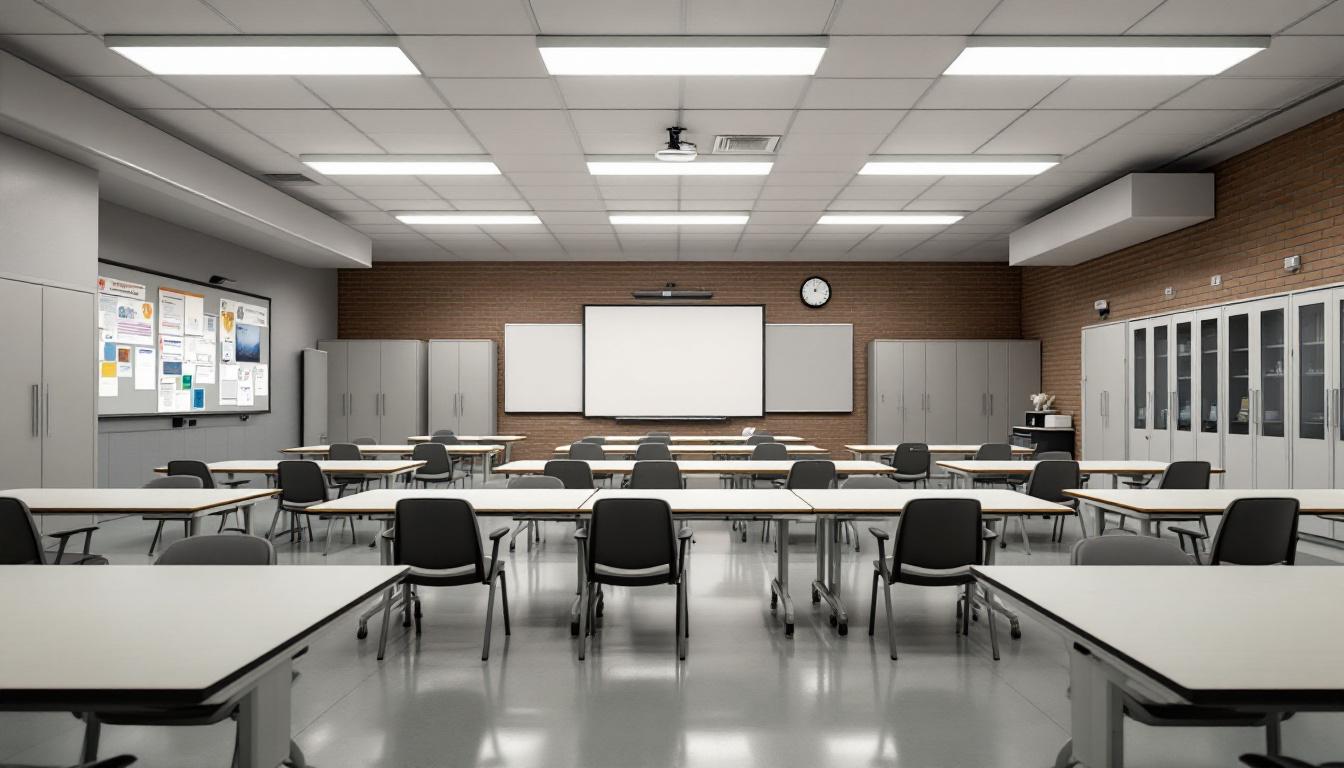
About Mabel Bassett Correctional Center
Correctional facilities across Oklahoma's southern region serve as critical components in the state's justice system, providing structured environments where individuals work toward rehabilitation and eventual community reintegration. The Eddie Warrior Corr. Center (EWCC) operates within this framework in Dallas, Oklahoma, functioning as an OK correctional facility that typically emphasizes connecting incarcerated individuals with resources that may support their transition back into society.
Historically, correctional institutions in this part of Oklahoma have evolved to recognize the importance of maintaining connections between incarcerated individuals and their home communities. The facility generally houses individuals from various backgrounds, with the population services often including educational opportunities, vocational training programs, and counseling services that may help address underlying issues contributing to criminal behavior. These programs typically focus on developing practical skills and addressing personal challenges, while also working to strengthen family relationships that remain vital throughout the incarceration period.
Community partnerships often play a significant role in the facility's approach to rehabilitation, as local organizations and faith-based groups may provide additional support services and programming. The center's location in Dallas allows for potential connections with regional resources, including job training programs and substance abuse counseling that may continue after release. Family visitation and communication programs are generally prioritized, recognizing that maintaining these crucial relationships often contributes to successful reintegration into the community upon completion of sentences.
Programs & Services
Through comprehensive programming designed to address diverse needs, Eddie Warrior Correctional Center cultivates an environment where meaningful transformation becomes achievable for the population. The facility's approach to rehabilitation emphasizes skill development, personal growth, and community connection, recognizing that successful reintegration requires multifaceted support systems that extend beyond basic custodial care.
Educational programs typically form the cornerstone of personal development opportunities, offering literacy enhancement, GED preparation, and continuing education pathways that enable participants to build foundational academic skills. Also available are vocational training initiatives that may supply hands-on experience in construction trades, equipping the population with marketable skills essential for post-release employment. These career-focused programs often include certification opportunities that enhance participants' competitive advantage in the job market upon their return to the community.
Faith-based programs provide spiritual guidance and moral development opportunities, while specialized services such as printing workshops offer practical skill development alongside therapeutic benefits. The facility may also offer victim awareness programming designed to foster empathy and accountability, helping participants understand the broader impact of their actions. Additionally, arts and crafts activities serve dual purposes, providing creative outlets for self-expression while developing fine motor skills and patience that contribute to overall personal growth and emotional well-being.
Daily Life & Visitation
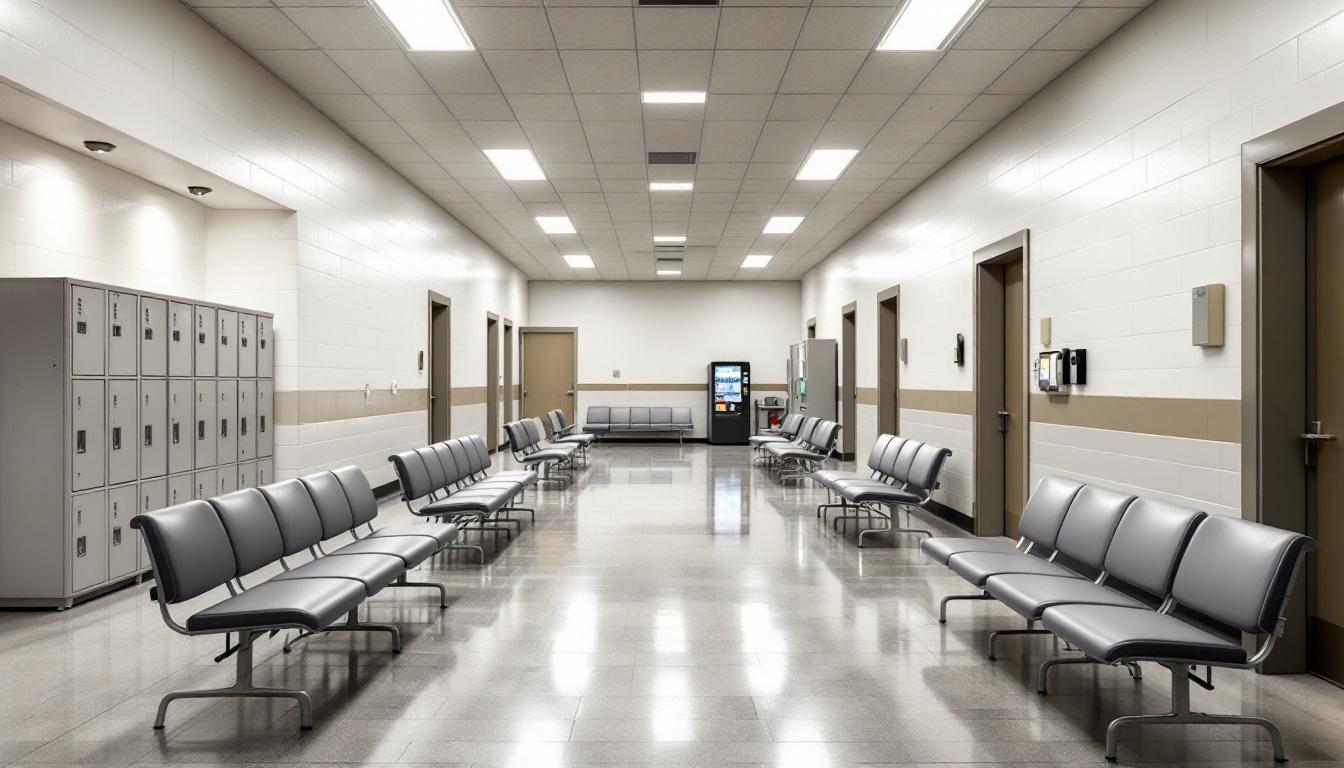
Systematic organization shapes every aspect of life within the facility, as structured routines currently provide the framework that guides the population through each day. The institution continues to operate on a carefully coordinated schedule that typically begins with early morning counts, followed by meal service and work assignments that supply both purpose and skill development opportunities. Generally, the population moves through designated periods for educational programming, recreational activities, and personal time, with security procedures seamlessly integrated into the daily flow to maintain order while allowing for meaningful engagement in various programs.
Housing arrangements at the facility typically consist of dormitory-style accommodations and individual cells, depending on security classification and program participation. The population generally resides in units that may accommodate varying numbers of individuals, with personal property allowances that usually include basic necessities and approved items from the commissary system. Also, dining services typically provide three meals daily in designated areas, with the population moving in organized groups according to housing assignments and security protocols that ensure orderly meal distribution while maintaining safety standards.
However, daily life extends beyond basic routines to include structured programming that may offer educational opportunities, vocational training, and recreational activities that supply both physical exercise and social interaction. The facility typically provides outdoor recreation time, indoor common areas, and organized sports activities when weather and security conditions permit. Also, family connections remain important through visitation programs that generally operate on scheduled days, along with telephone privileges and correspondence opportunities that help the population maintain relationships with loved ones and community support systems during their time at the facility.
Ready to Connect?
Start communicating with your loved one today
Search for an Inmate
